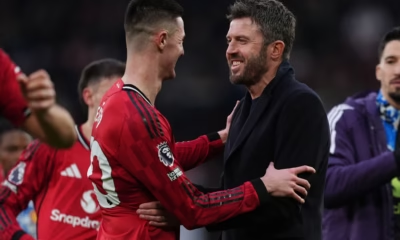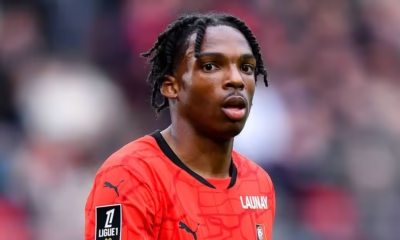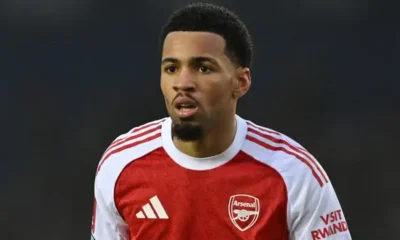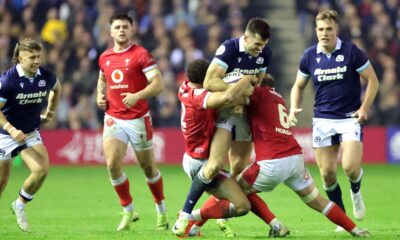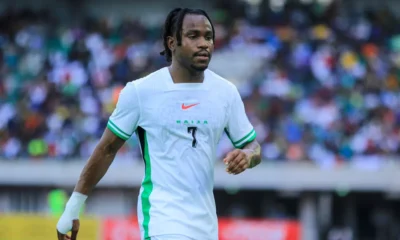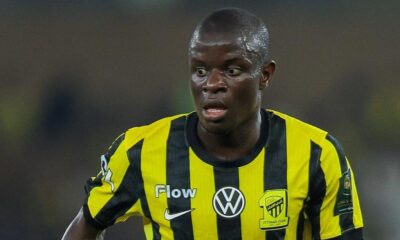News
Spanish FA president Rubiales resigns over W/Cup kiss scandal
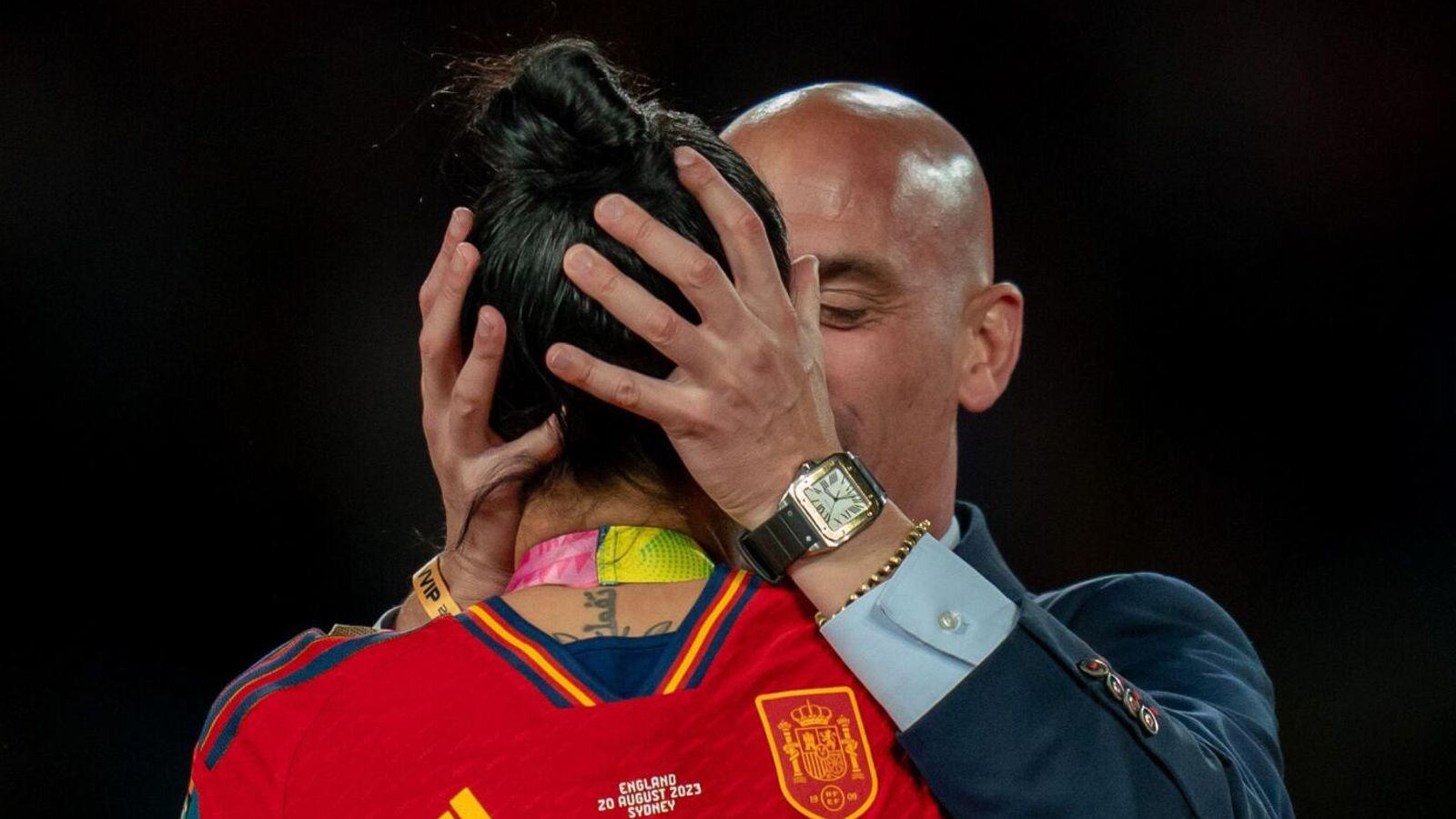
Luis Rubiales has resigned as the president of the Royal Spanish Football Federation (RFEF) because of the ongoing investigations against him following his unsolicited kiss on Spain forward Jenni Hermoso.
Hermoso filed a criminal complaint last week, which led to prosecutors filing a case with Spain’s top court against Rubiales. He faces charges of sexual assault and coercion for his conduct after last month’s Women’s World Cup final, which Spain won 1-0 against England.
Later on Sunday, the RFEF confirmed Rubiales’ resignation in a statement and that he would be stepping down as a vice president with UEFA.
His behaviour, which also saw him grabbing his crotch and kissing other players, subsequently led to him being suspended from all football-related activity by FIFA, the sport’s top governing body, for 90 days as it carries out its own investigation.
“I have handed in my resignation to the acting president, Pedro Rocha,” Rubiales confirmed in an open letter published on Sunday.
“I have also informed him that I have done the same with my position at UEFA, so that a replacement for my role as vice president can be sought.
“After the suspension by FIFA, in addition to the rest of the proceedings against me, it is clear that I will not be able to return to my position.”
Amid the fallout from the incident, Spain coach Jorge Vilda was fired on Tuesday.
Rubiales had previously refused to resign despite the pressure that mounted on him in recent weeks. After refusing to do so in a speech in August, in which he blamed “false feminism” and a campaign against him, the Spanish government sought to intervene and suspend him from his position.
However, it has been unable to do so because of a ruling from Spain’s top sports court (TAD). As TAD classified Rubiales’ infraction as “serious” and not “very serious,” the government has been unable to step in, but Hermoso’s decision to press changes changed the face of the investigation.
Rubiales said his decision to resign now is meant to avoid further fallout for Spanish football and the RFEF’s bid to host the 2030 World Cup in collaboration with Portugal, Morocco and Ukraine.
“To insist on waiting [for an outcome] and clinging on to [my position] will not contribute to anything positive — neither for the RFEF nor Spanish football,” Rubiales added.
“There are powers that be that will prevent my return. I do not want Spanish football to be harmed by this disproportionate campaign [against me].
“I am taking this decision after having made sure that my departure will contribute to the stability that will allow both Europe and Africa to remain united in the dream of [co-hosting the World Cup in] 2030.”
Rubiales previously said the kiss was consensual — a claim Hermoso has strongly denied, saying she felt she was the victim of an aggressive act — and he will now focus on defending his name.
“I have faith in the truth and I will do everything in my power to make sure it prevails,” he said.
“My daughters, my family and the people who love me have suffered the effects of unconscionable persecution, as well as many falsehoods, but it is also true that on the street, every day more and more, the truth is prevailing.”
FIFA’s investigation could lead to a ban from football for as long as 15 years, according to reports, while the criminal case could see Rubiales handed a prison sentence of up to five years. Legal sources told ESPN, however, that if found guilty he would likely be handed a one-to-two-year suspended sentence.
Meanwhile, after Rubiales’ conduct was classified as “serious,” TAD’s investigation could lead to a maximum professional disqualification of about two years.
No. 2-ranked Spain is scheduled to start the Women’s Nations League on Sept. 22 in a visit to top-ranked Sweden. Spain beat Sweden in the World Cup semifinals.

-

 News2 days ago
News2 days agoMichael Carrick Explains Mason Mount Absence In Manchester United Win Over Fulham
-

 Uncategorized1 day ago
Uncategorized1 day agoElliot Lee Takes Subtle Swipe At Phil Parkinson After Wrexham Exit
-

 Premier League2 days ago
Premier League2 days agoLiverpool Stun Chelsea With £60m Jeremy Jacquet Transfer Twist
-

 Premier League2 days ago
Premier League2 days agoCan Arsenal Recall Ethan Nwaneri? Why the Gunners Can’t Bring Him Back After Merino Injury
-

 More Sports1 day ago
More Sports1 day agoSix Nations Shake-Up: Why The New Six-Week Format Could Change Everything
-

 Local News2 days ago
Local News2 days ago“Very, Very Happy”: Ademola Lookman Speaks As Atletico Madrid Player
-

 News1 day ago
News1 day agoEnzo Fernandez Sends Emotional Message Of Support To Chelsea Starlet Estevao
-

 Transfers9 hours ago
Transfers9 hours agoKanté Terminates Al-Ittihad Contract To Seal Fenerbahce Move As Ex-Chelsea Star Returns To Europe









